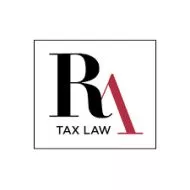Toronto Maple Leafs' captain, John Tavares, is entangled in a legal battle with the Canada Revenue Agency (CRA) concerning over $8 million in taxes and interest. The contention revolves around a signing bonus of $15.3 million that Tavares received upon joining the team nearly six years ago. The outcome of this dispute could potentially impact Tavares's future with the Leafs and have broader implications for Canadian professional sports teams aiming to recruit top-tier players.
Watch below as CTV News interviews our founding partner, Jason Rosen, for his view on the situation:
Tavares has lodged an appeal in the Tax Court of Canada, contesting
the CRA's reassessment of his 2018 tax return. The crux of the
appeal asserts that the CRA incorrectly calculated the tax owed on
the signing bonus, arguing that it should have been taxed at a
lower rate of 15 per cent under a provision of the Canada-U.S.
taxation treaty applicable to inducements like signing bonuses for
athletes, artists, actors, and musicians.
While Tavares claims the bonus was integral to his decision to join the Leafs, the CRA contends that he owes a tax rate exceeding 38 per cent on the bonus, along with interest. However, the CRA has yet to respond to the appeal, and no allegations have been substantiated in court.
The resolution of this case bears significance for professional sports franchises seeking to offer substantial signing bonuses to attract unrestricted free agents to Canada, especially considering the federal tax rate increase in 2016. Moreover, the tax dispute may influence Tavares's decision to renew his contract with the Leafs after the current one, which ends next season. Notably, a significant portion of Tavares's compensation is structured as a bonus.
Following his tenure with the New York Islanders, Tavares became a highly sought-after free agent in 2018, drawing interest from several NHL teams. Despite potentially higher take-home pay elsewhere due to tax differentials, Tavares chose to fulfill his childhood dream of playing for his hometown team, the Leafs.
The appeal emphasizes that the signing bonus was crucial in Tavares's decision-making process, indicating his commitment to a long-term contract with the Maple Leafs. Tavares's argument rests on the distinction between the bonus and regular salary, asserting that it should be taxed differently due to its nature as an inducement.
The CRA's reassessment alleges that Tavares's income for 2018 was substantially higher than reported, leading to additional taxes and interest charges. However, Tavares contends that the bonus, deposited into his New York-based account, should be treated differently for tax purposes, especially considering his limited presence in Canada during the period in question.
The CRA appears to be taking the position that the structure of the inducement payment is in fact in part or wholly remuneration for employment and not really an inducement payment.
Article XVI of the Canadian US Tax Treaty, Clause 4, in respect to for example an athlete that is a resident of the US and paid by a company resident in Canada, limits the ability of Canada to tax the inducement payment to 15% of that payment.
Ultimately, while tax rates are a factor for professional athletes when considering contracts, other aspects such as team quality and location also weigh in. Various tax strategies can be employed to mitigate the tax burden, but the resolution of Tavares's case could have implications for the recruitment and retention of top talent by Canadian sports teams.
Related Posts:
- Finding the Best Tax Debt Lawyer: Navigating Tax Debt Challenges
- Are Gambling Winnings Taxable in Canada?
The content of this article is intended to provide a general guide to the subject matter. Specialist advice should be sought about your specific circumstances.


